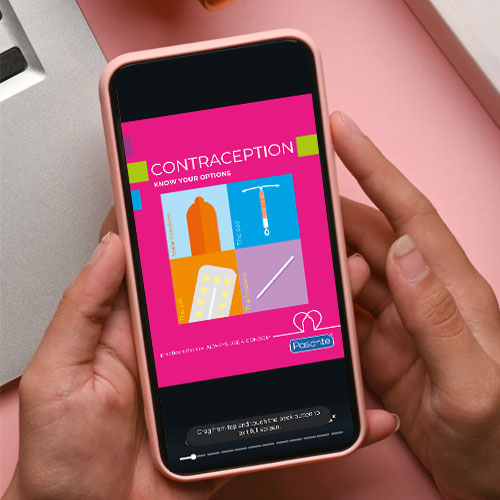
Sex Ed: Sex-drive - is yours high or low?
Share
What is a sex-drive? Our sex-drive or libido refers to our desire to engage in sexual activity. Everyone’s sex-drive is different, so someone who has a higher sex-drive might prefer to have sexual activity more frequently, whereas someone with a lower-sex drive may desire sex a little less. Sex-drive can often be thought of as a spectrum that fluctuates - there may be times you want to have sex less often than other times, and this can be due to a whole range of different factors; relationship satisfaction, stress, anxiety, medication etc..
So if you’re curious about your sex-drive or sexual desire, read on to find out more about your sex-drive, why we might have a low sex-drive, and what to do if we think we have a sex addiction.
Sex-drive explained
There are many reasons why some people have a higher sex-drive and others don’t, and there may be times our sex-drive fluctuates. Depending on our preference, it’s perfectly normal. While some people prefer to have sex once a month, others may need to have sexual activity weekly or even daily. However, our libido only becomes a medical issue if our high or low-sex drive becomes a problem for ourselves and our relationships.
Our libido or sexual desire is affected by three core factors; biological (the amount of sex hormones we have), psychological (how we are feeling) and social factors (our relationships and environment) which all work together to create how much we desire sex. Let’s explore each of these biopsychosocial factors in more detail.
Biological
Our hormones play a vital role in how high or low our sex-drive or libido is. One hormone is testosterone which is produced by both men and women and is a primary hormone responsible for our desire to engage in sexual activity. Some people have a higher sexual desire in the morning as that is when testosterone levels are usually at its highest.
For those who ovulate, they may find an increased sex-drive around ovulation as testosterone levels tend to increase during this period.
For those with a penis, testosterone is at its highest around the age of 17 which remains high for a few decades before slowly decreasing, this is when they may find their libido or sex-drive lowers.
Psychological
Certain psychological factors can influence whether people have a higher or lower-sex drive. If we’ve been feeling anxious, stressed, fatigued or have poor mental health, we may find that our sexual desire is lower.
Those that have experienced sexual abuse or trauma may find they have a reduced libido as post-traumatic-stress-disorder can often cause a lower sexual desire. Depression and libido often coincide too, with reduced libido being a core symptom of depression.
Social
Our relationships can play a huge part in our desire for sexual activity. A new relationship may ignite our sex-drive, causing a stronger desire to engage in sexual activity as our attraction and lust is at its strongest. Our sex-drive can often reduce when in a long-term relationship or marriage, as while the emotional bond between each other may increase, the lust and attraction can weaken which can affect our libido or sex-drive.
Our sex-drive can also be sensitive to our environment and context. Factors, such as the strength of contentment in our relationships, whether there’s a positive or negative atmosphere, the time we have sex (It’s not too late and we’re not exhausted), even religious beliefs, values and upbringing can influence how high or low our sexual desire is.
Causes of low sex-drive
For those with a lower sex-drive, which is completely normal, there may be other factors that may be involved in having a lower libido.
Menopause - hormonal changes during the menopause have been shown to cause a lower libido, resulting in vaginal dryness and discomfort when having sex. Our range of lubricants help to reduce vaginal dryness, making sex feel more comfortable and satisfying.
Mental health - Anxiety, depression or other mental health conditions increase the risk of experiencing sexual dysfunction problems, which often leads to low sex arousal.
Age - One study exploring the relationship between sexual desire and older age showed a decrease in sexual desire after the age of 50, with a significant decrease after the age of 60 for women.
Chronic conditions - Research has shown that chronic conditions such as diabetes and heart disease can cause sexual dysfunction, which may cause a lower sex-drive.
Medication - Some medication can cause a lower sexual desire, for example a type of antidepressant called selective serotonin re-uptake inhibitors (SSRI) has been shown to reduce libido. If you are taking medication and have a reduced libido, it may be worth reading the information leaflet to see any possible side effects.
Are you addicted to sex?
Hyper-sexuality, or compulsive sexual behaviour is when a persons desire to has sex is so high that it becomes difficult to control and negatively affects your life, relationships and other parts of your life lasting for six months or more.
Someone with hyper-sexuality may experience the following symptoms;
- Recurrent and intense sexual fantasies, urges or behaviours.
- The time spent engaging in sexual fantasies negatively impacts on the rest of their life.
- The person engages in sexual activity, while ignoring potential physical or emotional harm to themselves or others.
- Being unable to control sexual urges, despite numerous attempts.
- Engaging in sexual activity, but gaining no pleasure from them.
If you have any of these symptoms, it might be worth talking to your GP who can refer you for treatment or psychosexual counselling.



